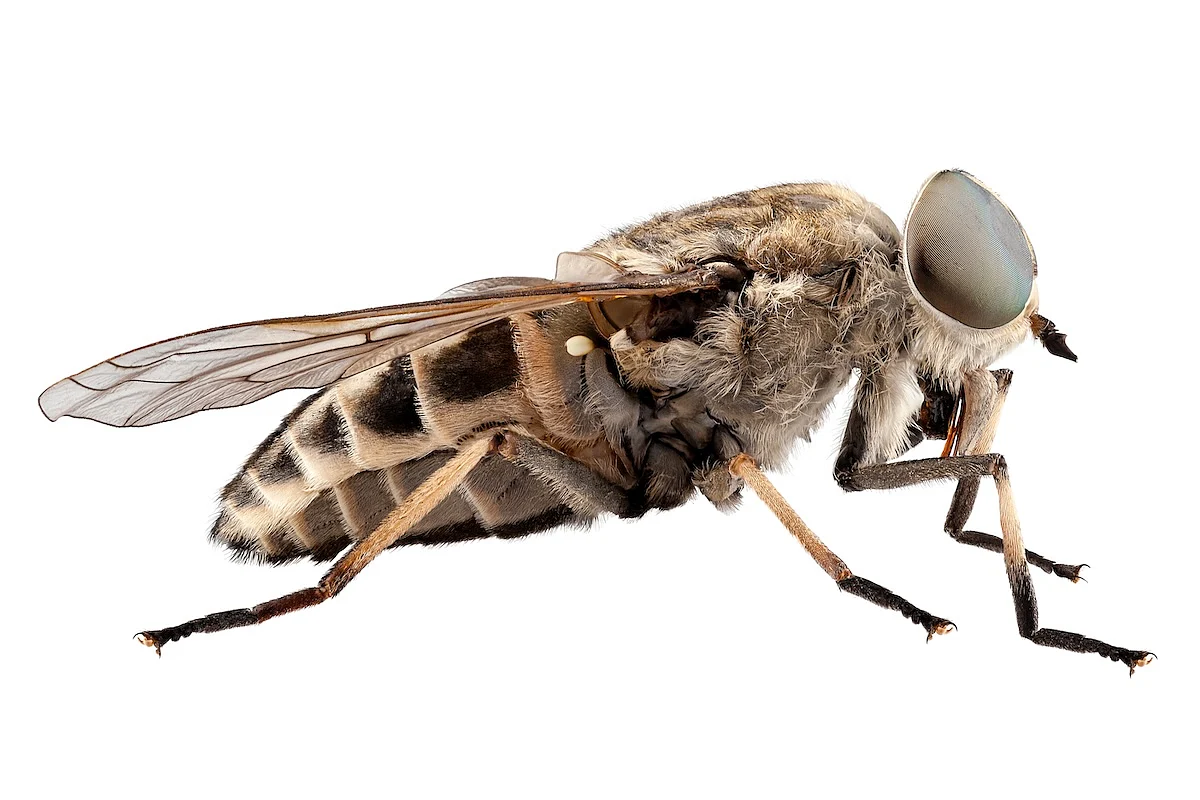Sleeping Sickness Eliminated in Kenya, WHO Says
By I. Edwards HealthDay Reporter
 via HealthDay
via HealthDayTHURSDAY, Aug. 14, 2025 — The World Health Organization (WHO) has recognized Kenya as having eliminated human African trypanosomiasis (HAT), also known as sleeping sickness, as a public health problem.
Kenya is now the 10th country to reach this milestone. HAT is the second neglected tropical disease it has eliminated, with the first being Guinea-worm disease in 2018, the organization said.
“I congratulate the government and people of Kenya on this landmark achievement,” WHO Director-General Tedros Adhanom Ghebreyesus said in a news release.
“Kenya joins the growing ranks of countries freeing their populations of human African trypanosomiasis," he said. "This is another step towards making Africa free of neglected tropical diseases.”
HAT is caused by the blood parasite Trypanosoma brucei and is spread through bites from infected tsetse flies. Rural communities that rely on farming, fishing, livestock, or hunting face the highest risk of exposure.
The form found in Kenya, Trypanosoma brucei rhodesiense (r-HAT), progresses quickly, attacking multiple organs, including the brain. Without treatment, it is fatal within weeks.
The first HAT cases in Kenya were identified in the early 1900s. No new local cases have been reported in more than 10 years, with the last occurring in 2009.
The most recent imported cases, both linked to the Masai Mara National Reserve, were reported in 2012, the organization explained.
To strengthen detection, Kenya equipped 12 health facilities with advanced diagnostic tools and trained health workers in the most accurate testing methods. The facilities were located across six counties where the disease had been consistently present.
The country also ramped up surveillance for tsetse flies and animal trypanosomiasis infections, supported by national veterinary authorities and the Kenya Tsetse and Trypanosomiasis Eradication Council.
“This validation marks a major public health milestone for Kenya, as we celebrate the elimination of a deadly disease in our country," Aden Duale, Kenya’s Cabinet Secretary for Health, said in a news release. "The achievement will not only protect our people but also pave the way for renewed economic growth and prosperity.”
He said this milestone follows many years of "dedication, hard work, and collaboration.”
Kenya will now implement a surveillance plan to detect any new cases or possible reintroduction of the disease quickly. WHO and partners, including Kenya’s HAT-elimination program FIND, will continue to support monitoring. With donations from pharmaceutical companies Bayer AG and Sanofi, they will also maintain a supply of medicines for rapid treatment if needed.
“This success was made possible by the Ministry of Health’s leadership, the dedication of health workers in areas at risk, and the support from key partners,” said Dr. Abdourahmane Diallo, WHO representative to Kenya.
Worldwide, 57 countries have eliminated at least one neglected tropical disease. Ten have eliminated sleeping sickness as a public health threat: Kenya, Benin, Chad, Côte d’Ivoire, Equatorial Guinea, Ghana, Guinea, Rwanda, Togo, and Uganda.
Sources
Disclaimer: Statistical data in medical articles provide general trends and do not pertain to individuals. Individual factors can vary greatly. Always seek personalized medical advice for individual healthcare decisions.
Source: HealthDay
Posted : 2025-08-15 06:00
Read more

- Study Suggests Cutting Sugar Before Age 2 Could Lower Heart Disease Risk
- Garetosmab Biologics License Application Accepted for FDA Priority Review for the Treatment of Fibrodysplasia Ossificans Progressiva (FOP)
- Cardiovascular Risk Factors, Disease Prevalence Set to Increase Through 2050 in Women
- Parental Worry IDs Most Cases of Severe Illness in Children and Teens
- Pfizer’s Ultra-Long-Acting Injectable GLP-1 RA PF’3944 Shows Robust and Continued Weight Loss with Monthly Dosing in Phase 2b Trial
- Flea And Tick Pills May Pose Environmental Risks, Study Finds
Disclaimer
Every effort has been made to ensure that the information provided by Drugslib.com is accurate, up-to-date, and complete, but no guarantee is made to that effect. Drug information contained herein may be time sensitive. Drugslib.com information has been compiled for use by healthcare practitioners and consumers in the United States and therefore Drugslib.com does not warrant that uses outside of the United States are appropriate, unless specifically indicated otherwise. Drugslib.com's drug information does not endorse drugs, diagnose patients or recommend therapy. Drugslib.com's drug information is an informational resource designed to assist licensed healthcare practitioners in caring for their patients and/or to serve consumers viewing this service as a supplement to, and not a substitute for, the expertise, skill, knowledge and judgment of healthcare practitioners.
The absence of a warning for a given drug or drug combination in no way should be construed to indicate that the drug or drug combination is safe, effective or appropriate for any given patient. Drugslib.com does not assume any responsibility for any aspect of healthcare administered with the aid of information Drugslib.com provides. The information contained herein is not intended to cover all possible uses, directions, precautions, warnings, drug interactions, allergic reactions, or adverse effects. If you have questions about the drugs you are taking, check with your doctor, nurse or pharmacist.
Popular Keywords
- metformin obat apa
- alahan panjang
- glimepiride obat apa
- takikardia adalah
- erau ernie
- pradiabetes
- besar88
- atrofi adalah
- kutu anjing
- trakeostomi
- mayzent pi
- enbrel auto injector not working
- enbrel interactions
- lenvima life expectancy
- leqvio pi
- what is lenvima
- lenvima pi
- empagliflozin-linagliptin
- encourage foundation for enbrel
- qulipta drug interactions
